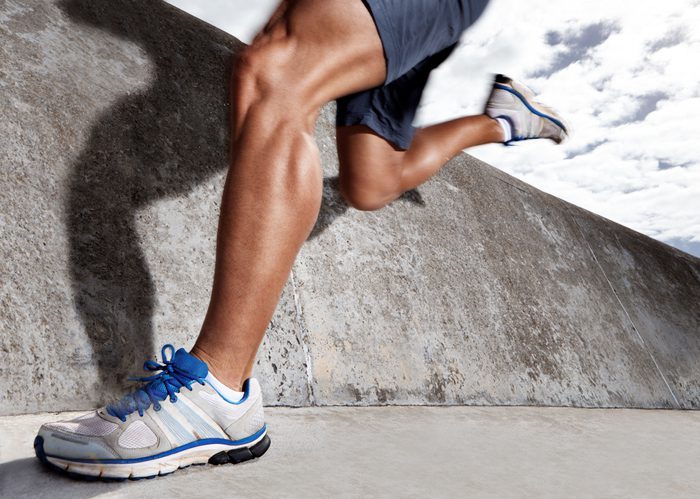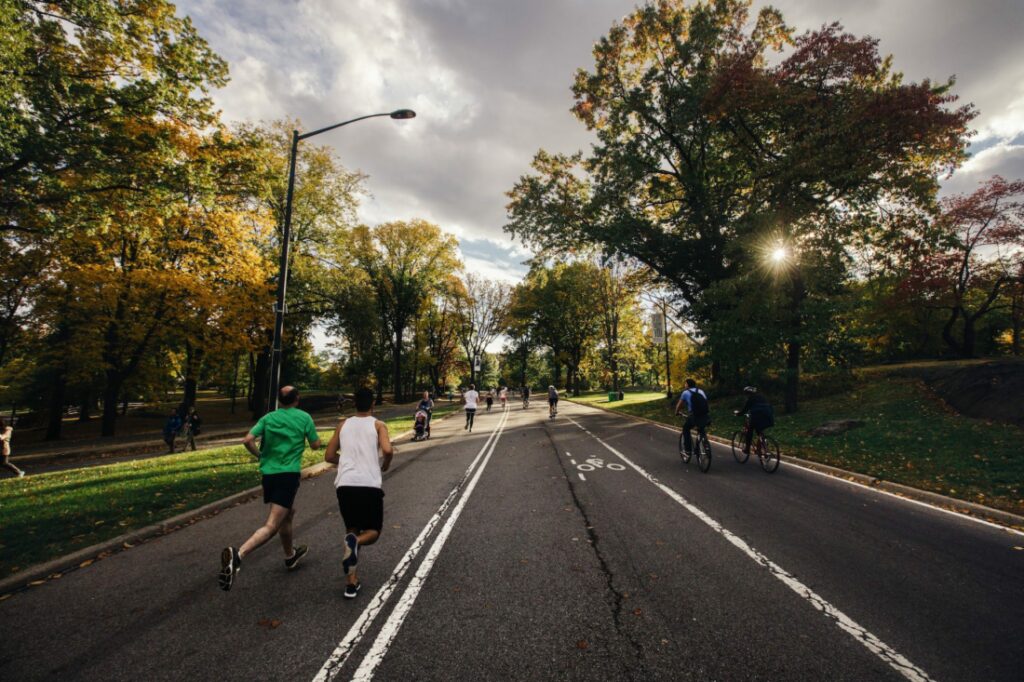Ready to take your running game to the next level in under five minutes? Strides are your secret weapon. These short, 20- to 30-second bursts of faster running are a fun and efficient way to boost your speed and improve your running form. Whether you sprinkle them into your workout before, after or even during your regular run, you’ll feel the benefits. Finish a long, easy run with some strides to loosen up your legs, increase your range of motion, and perfect your form. Or, use them as a warmup to prime your body for a faster pace.

Enhance running form
Strides can improve your running form by encouraging better posture, increasing your cadence and enhancing your overall biomechanics. By running at a faster pace for short bursts, you naturally adopt a more upright and efficient posture, engage your core muscles and drive your knees higher. This practice helps you develop muscle memory for an optimal running form, making your regular runs smoother and more efficient. Over time, this increased efficiency can make your speedwork feel easier and boost your performance when it really matters.

Practise race pace on tired legs
After a tempo run or interval session where you’ve been running slower than your goal race pace, strides provide an opportunity to run more quickly on legs (and a mind) that is already fatigued. This is a great segue into doing more work at race pace as you get stronger, and helps you practise running fast on tired legs, which will come in handy on race day as you charge into a final sprint to the finish.

Kickstart recovery
Strides are not just about speed; they also play a crucial role in recovery and injury prevention. By briefly re-activating your muscles and your circulatory system after your heart rate has already begun to come down, you can help your muscles to take up lactate more efficiently. This is a great way to kick-start the recovery process after a short-to-medium-length workout.
The dynamic nature of strides also helps activate and strengthen muscles that might be neglected during slower, steady-state runs. This can help balance your muscle development and reduce the likelihood of overuse injuries.

Get started today
Adding strides to your training regime is simple, and doesn’t require much time. Begin by adding four to six strides at the end of one or two of your easy runs each week. To perform a stride, gradually accelerate over the first few seconds, reach your top speed by the middle of the stride, and then decelerate. Focus on maintaining good form throughout, with relaxed shoulders and a quick, light turnover. Allow for a full recovery between strides, either by walking or running slowly for about a minute. As you become more comfortable, you can increase the number of strides or incorporate them into different parts of your training routine.

